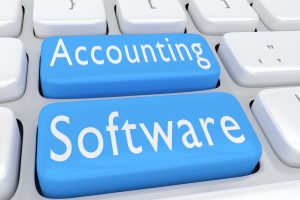 Did you know that 85% of small businesses say that technology like software solutions helps them be successful? However, with so many different software options available, it can be overwhelming for small business owners to choose the right ones. This is especially true for the most important parts of a small business like accounting.
Did you know that 85% of small businesses say that technology like software solutions helps them be successful? However, with so many different software options available, it can be overwhelming for small business owners to choose the right ones. This is especially true for the most important parts of a small business like accounting.
So, how can you feel confident that you’ll choose the right small business accounting software for your company? We’re here to help.
Read on to learn tips on how to choose the best accounting software for small businesses.
Table of Contents
Think About What You Actually Need
First things first, take some time to consider how your business operates. Are you running a multi-million dollar company or are you still just getting started? What you need from accounting software will vary depending on your answer. There are some software options specifically designed for small and mid-sized companies. You might want to start looking there.
You should also consider whether there’s something about your specific industry that affects your accounting needs. For example, the accounting needs of a restaurant will vary from those of a supply company.
Finally, consider your current accounting skills. Do you need a solution that will do most of the work for you? Or, would you prefer an option that has a certification course available? For example, you might research what a Quickbooks course includes to see if that would be a good option for your needs.
Think About Your Budget
Once you’ve done some initial research based on the needs of your specific business, you can begin to compare the different options on the market. While it’s not necessarily the most important factor to consider, keep your budget in mind while making your decision.
Go into your research with a ballpark figure that you’ll be comfortable allocating toward your accounting software. Then, as you compare different accounting software solutions, pay attention to monthly costs and whether they offer discounts for paying annually instead.
Most importantly, make sure you understand exactly what each software includes for the price, so you can do a more accurate comparison. Does one software seem very cheap or much more expensive than other comparable options? It could be a sign that they’re not upfront about their services or fees.
Think About Add-on Features
Finally, before you make your decision, check to see if the accounting software you’re choosing has any extra functionality available via add-on features. For example, some might offer the ability to integrate with your eCommerce software or have tax features.
The fewer pieces of software you have to use for your business, the easier your life will be, so find something that can do a lot for you, if possible.
Choosing the Best Accounting Software for Small Businesses
After reading through these tips on how to choose the best accounting software for small businesses, you’re ready to begin your search. Before you know it, you’ll be up and running on a software system that best fits your needs.
Interested in reading more business content like this? Check out our other articles before you go.